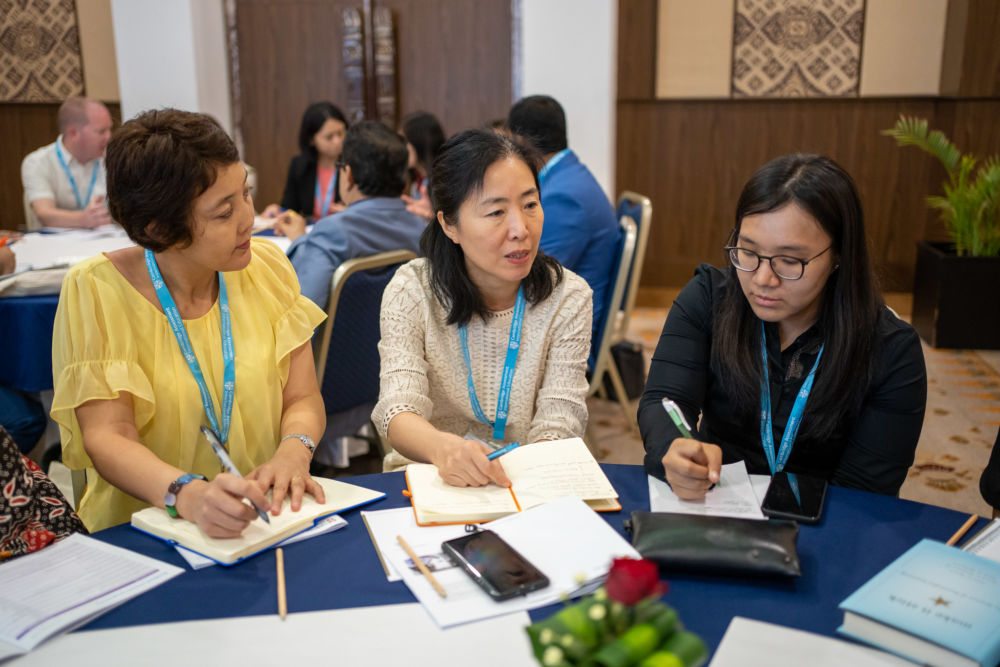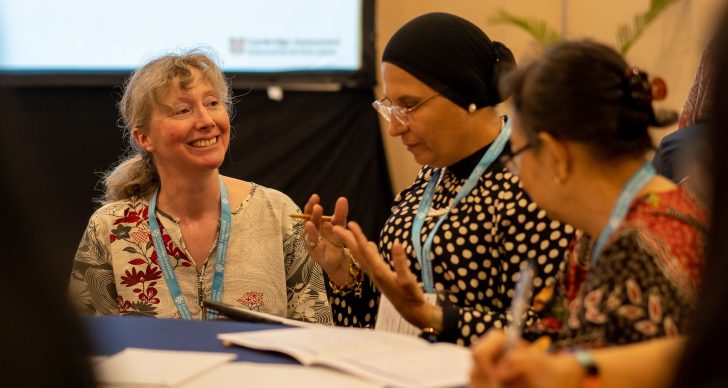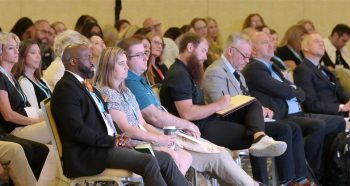Practitioner research: Making an impact in schools
As practitioners of the teaching profession, it is important for us to frequently examine how we teach.
Researching our own practice gives us a greater understanding – and therefore control – over what we do. This supports our professional judgement – knowing what to do and not do in a particular context in order to maximise students’ learning.
Teachers and leaders can develop a toolkit of ways of generating evidence about their practice. Doing so supports a culture of continuous development within a school, which can help practitioners to stay stimulated by their work over the long term.
Moreover, if research findings are shared with colleagues, then knowledge is built up within subject or age-phase communities, to the benefit of both teachers and learners.

What are the challenges of teacher research?
Of course, a key challenge is time. This type of professional development is important, but it can easily keep slipping to the end of the ‘to do’ list when there are so many urgent jobs to tackle in schools.
A tip here is to focus research on issues or innovations that you need to address as part of your normal work. By doing some background reading and building in some simple data collection and analysis, you can generate evidence to evaluate the impact of changes. It’s important to take small steps, though – better to do something simple well, than be over-ambitious and not complete the research.
Another challenge with small-scale practitioner research is that while it’s useful to one person in their context, it’s often not shared with a wider audience. This is a bit like one person letting off a firework where no-one else can see. They might enjoy it but no-one else gets the benefit. Instead, the ideal is co-ordinated display of different fireworks which many people can gather to enjoy together. Sometimes teachers lack both time and opportunities to share their research findings in person or in writing.
How can we develop a research culture in schools?
There are various ways in which schools can encourage a research culture. For example, starting a reading group can enable teachers to come together to discuss a research summary relevant to their teaching practice. This could develop into a forum for sharing teacher enquiry based on the topic of the research. A reading group need not be a major commitment – it could meet every month, or even every half term. Encouraging teachers to use reflective journals and to share their insights with a buddy or small group can also be productive. The Cambridge Professional Development Qualifications, particularly the Diploma, are a helpful framework for structuring reflective practice and teacher enquiry.
The role of leadership
The role of school leaders is important in the process of building a research culture. Leaders can model engagement in research by reading widely, talking about what they’ve read and investigating their own leadership practice. They can ask questions to their staff that encourage evidence-based reflection on practice (for example ‘What did students learn in that lesson?’, ‘How do you know?’). Leaders can also encourage staff to discuss new practice in teaching and their subject in meetings, in addition to the routine and immediate issues of school life.
Share the fireworks!
If you are already researching your own practice, I hope I’ve encouraged you to keep going. If this is a new area for you, give it a try. If you are keen to hear more, come along to our Cambridge Schools Conference in Orlando, USA on 19-20 June 2020 and share the fireworks!
Top tip: how to research your practice and improve your school
If a teacher wants to improve their practice in a particular area, they may read around the topic first, deciding on a few ideas they would like to try out with the class.
They invite a colleague to observe their current practice for one lesson, recording any observations on the teacher’s usual strategy.
They then try out the new strategies for a month in order to get used to them. They then invite the colleague back to observe again and they discuss any changes observed. They also invite the class to feed back on their experience of questioning, using a short questionnaire.
The teacher reviews the evidence collected and considers the extent to which there is evidence of impact on the engagement and learning of all students.
They reflect on how to move forward in their practice from that point and they share their findings with a small group of interested colleagues in school.
In this way, teacher research (or enquiry) is an extension of strategies with which teachers are already familiar, for example reflective practice and assessment for learning. It’s something that can be used by and is useful to all teachers.
Further reading
Bassot, B. (2016). The reflective journal (2nd Edn.). London: Palgrave.
Baumfield, V., Hall, E., and Wall, K. (2013). Action research in education: Learning through practitioner enquiry (2nd Edn.). London: Sage Publications Ltd.
Getting Started with Evaluating Impact, available on our website at: http://www.cambridgeinternational.org/getting-started
Getting Started with Peer Observation, available on our website at: http://www.cambridgeinternational.org/getting-started
Getting Started with Reflective Practice, available on our website at: http://www.cambridgeinternational.org/getting-started
Gilchrist, G. (2018). Practitioner enquiry: Professional development with impact for teachers, schools and systems. London: Routledge.
Wiliam, D. (2018). Embedded formative assessment (2nd Edn). Bloomington, IN: Solution Tree Press.





